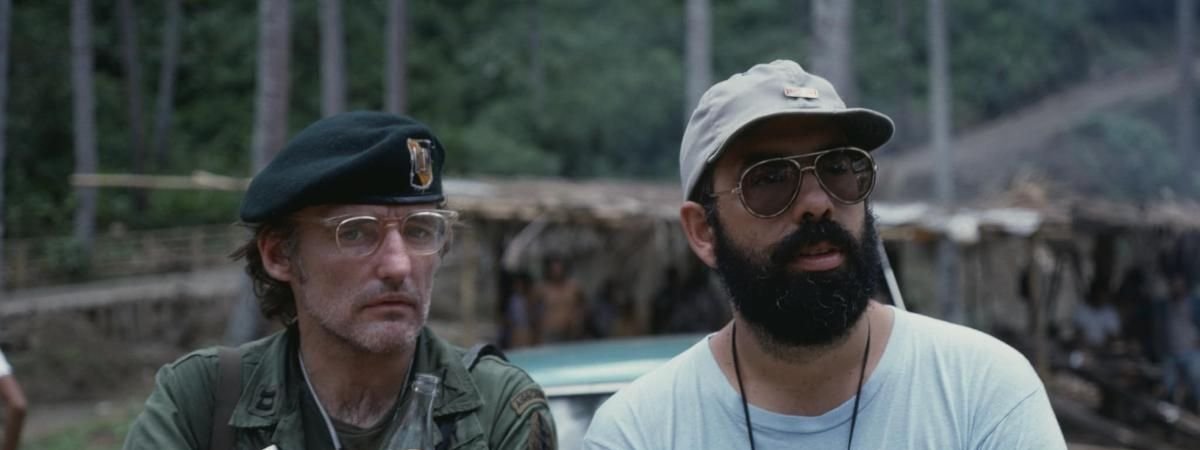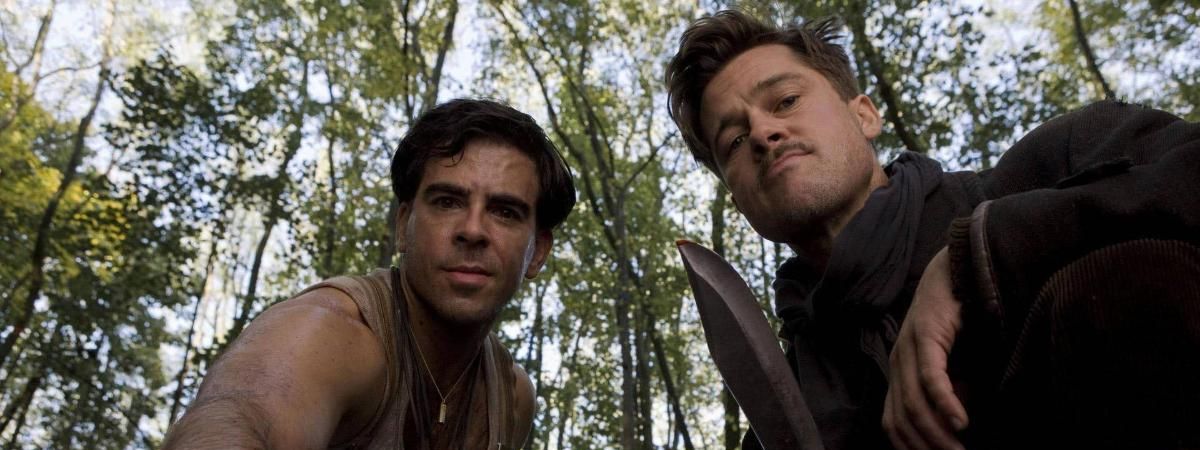Skip to the good bit
ToggleWith a family deeply rooted in creativity and the arts, Coppola was poised to harness his imaginative talents and translate them onto the silver screen.
Our journey into Coppola’s life takes us from the early years of a young boy raised in a supportive Italian-American family to his rise as one of the foremost directors, producers, and screenwriters in the industry. His masterpieces, including The Godfather series and Apocalypse Now, are not just films but cultural touchstones that continue to shape the cinematic landscape. As we explore his extensive filmography, we recognize the unique imprint of an artist who has fearlessly pushed the boundaries of cinema.
Early life and education
We find ourselves exploring the roots of a cinematic giant, Francis Ford Coppola, born on April 7, 1939. His early years were steeped in an artistic environment in Detroit, Michigan. Carmine Coppola, his father, played the flute with the Detroit Symphony Orchestra, and his mother, Italia, brought the passion of a family with theatrical inclinations into the home.
Education was a pivotal aspect of Coppola’s formative years. His journey began with a drama scholarship to Hofstra College in Hempstead, New York, back in 1956. Drama and music weren’t mere subjects to him; they were the conduits through which he honed his craft, setting the stage for a luminary career in filmmaking.
His later academic achievements, including an MFA in Film Production from UCLA’s prestigious Film School, reflect his dedication to storytelling through cinema. Coupled with his rich familial heritage in music and theater, our understanding of Coppola as the filmmaker behind epics like The Godfather and Apocalypse Now is deeply rooted in these early experiences. These were the decisive years where the seeds of his future greatness were nurtured through education and an environment rich in artistic influence.
Major films and achievements
In examining Francis Ford Coppola’s career, we find a remarkable collection of films that have significantly impacted cinema. His work has earned numerous accolades, including Academy Awards and critical acclaim.
The Godfather trilogy
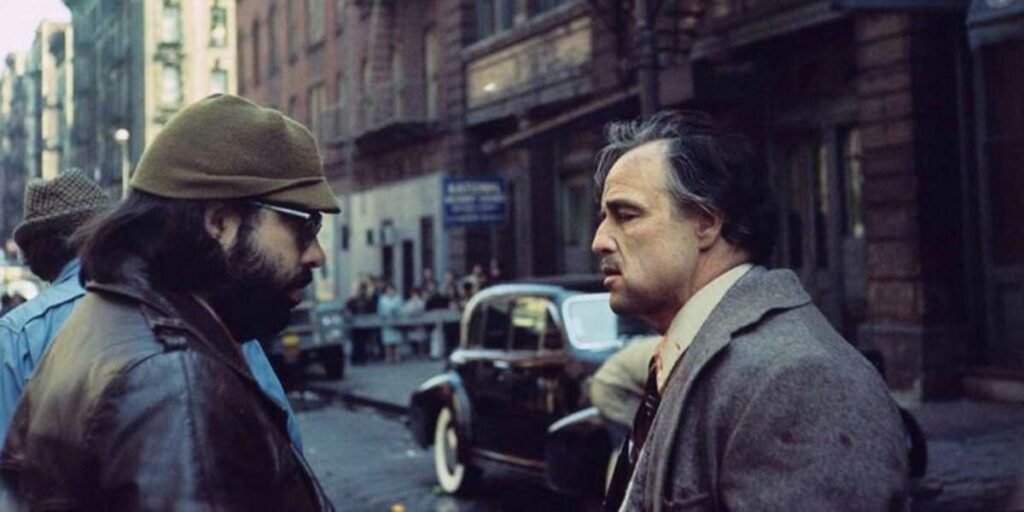
“The Godfather” (1972) is a cinematic landmark. Directed by Coppola and based on the novel by Mario Puzo, this film became a cornerstone of American cinema, earning three Academy Awards. The success continued with “The Godfather Part II” (1974), becoming the first sequel to win the Academy Award for Best Picture. The trilogy concluded with “The Godfather Part III” (1990), which, while not as revered as its predecessors, solidified its lasting legacy.
Apocalypse Now
“Apocalypse Now” (1979) is another crown jewel in Coppola’s directorial achievements, ranking as one of the best war movies ever. Embarking on a harrowing exploration of the Vietnam War, the film is known for its powerful performances and haunting visuals. The film won the Palme d’Or and is often listed among the greatest films of all time.
Featured in: Our top movies starting with A!
Other notable works
Coppola’s portfolio extends beyond the aforementioned epics. Notable films such as the fantastic thriller movie, “The Conversation” (1974), which delved into privacy concerns and paranoia, and “Bram Stoker’s Dracula” (1992), a gothic horror adaptation, showcase his versatility. Coppola has consistently captured the human experience regardless of genre, time period, or scale.
Influence and filmmaking style
We can’t discuss Francis Ford Coppola without acknowledging his profound impact on the film industry. His direction helped define the auteur approach to cinema, making him one of the most influential filmmakers of his time. Coppola’s ability to weave complex narratives showcases his unique storytelling abilities.
His filmmaking style is characterized by meticulous detail and emotional depth, traits that are particularly evident in his magnum opus, The Godfather series. These films, among others, illustrate how Coppola’s work has shaped the film industry and inspired contemporary filmmakers.
Coppola’s dedication to his craft has produced timeless classics that resonate with audiences. His influence extends beyond his own filmography, redefining the role of the director in the film industry and inspiring generations of directors to take creative control of their visions.
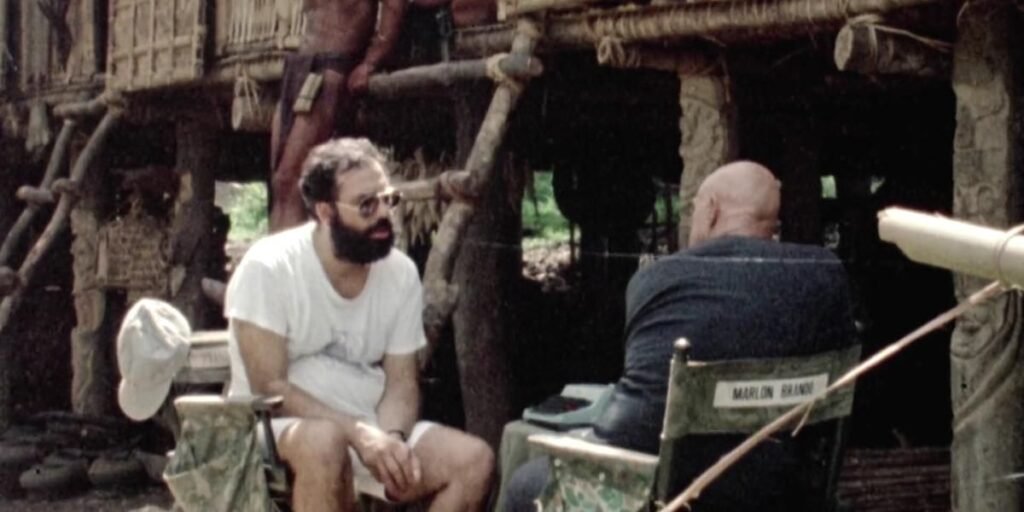
Awards and recognition
We’re diving into the prestigious world of awards and recognitions bestowed upon Francis Ford Coppola, a luminary in film direction, production, and screenwriting. Over the decades, Coppola’s dedication to the craft has been celebrated with numerous accolades, reflecting his influence in the New Hollywood era and beyond.
| Year | Award | Movie |
|---|---|---|
| 1972 | Academy Award’s Best Picture | The Godfather |
| 1972 | Academy Award’s Best Writing | The Godfather |
| 1973 | Golden Globe’s Best Director | The Godfather |
| 1974 | Academy Award’s Best Director | The Godfather Part 2 |
| 1974 | Academy Award’s Best Writing | The Godfather Part 2 |
| 1975 | Golden Globe’s Best Director | The Godfather Part 2 |
| 1979 | Palme d’Or | Apocalypse Now |
| 1980 | Golden Globe’s Best Director | Apocalypse Now |
| 1984 | FIPRESCI Prize for | Rumble Fish |
| 2007 | Life Achievement at Gold Derby Film Awards |
His seminal works, The Godfather Trilogy and Apocalypse Now, are widely acclaimed, with the latter earning him the coveted Palme d’Or. In addition, his creative vision garnered him the FIPRESCI Prize for Rumble Fish at the Venice International Film Festival.
Coppola’s influence spans beyond trophies and titles; his films are integral threads in the tapestry of American cinema. Not just an envelope-pusher on-screen, he was recognized with a Life Achievement nomination at the Gold Derby Film Awards, a nod to his enduring legacy in the film industry.
More about Francis Ford Coppola
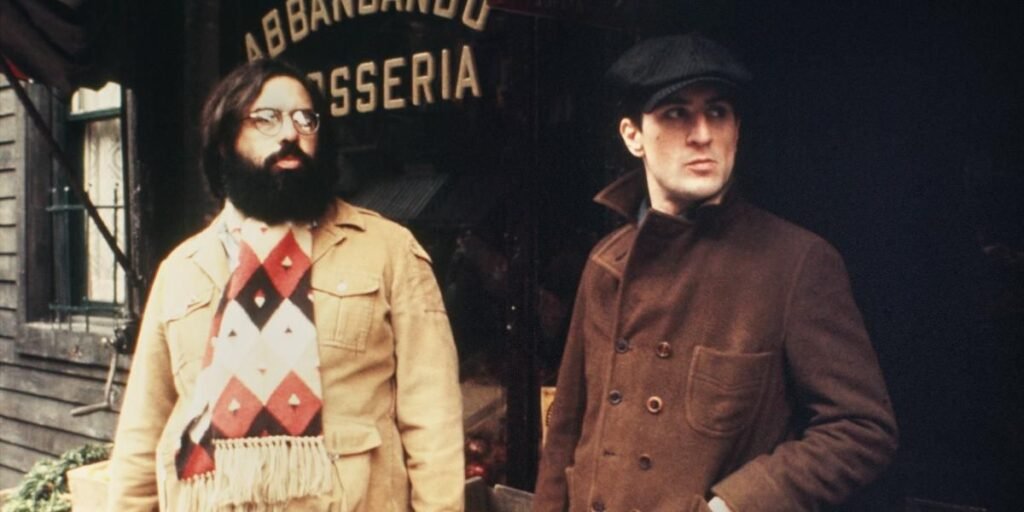
In this section, we’ll explore some common inquiries about the esteemed director Francis Ford Coppola to shed light on his legacy in film.
What are Francis Ford Coppola’s best movies?
Francis Ford Coppola’s directorial prowess is best showcased in his masterpieces, such as The Godfather, The Godfather Part II, and Apocalypse Now. These films have garnered critical acclaim and have had a lasting impact on cinema.
How has Francis Ford Coppola influenced the film industry?
Coppola has been a significant figure in the New Hollywood era, pioneering a style emphasizing directorial control and thematic complexity. His influence extends to the generations of filmmakers that follow, aspiring to his high storytelling and character development standards.
Who are Francis Ford Coppola’s family members?
Coppola’s family is a veritable dynasty in Hollywood. They include daughter Sofia Coppola, a noted film director and producer, and nephew Nicolas Cage, a prominent actor known for his work in a range of genres.
How has Francis Ford Coppola’s work evolved over the years?
Coppola’s career trajectory spans over five decades, during which his work has evolved from the groundbreaking mob sagas of the ’70s to encompass a broader array of genres and styles, frequently experimenting and pushing the boundaries of filmmaking.
What awards has Francis Ford Coppola won?
Coppola’s illustrious contributions to cinema have earned him multiple awards, including five Academy Awards and six Golden Globe Awards. His groundbreaking narratives and technical mastery solidify his status as a monumental figure in the film industry.

